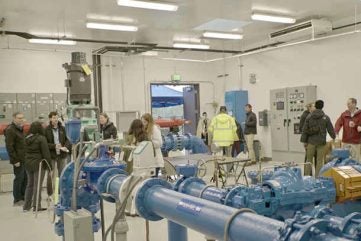
The City of Beaverton in Oregon, US, has completed renovations at its Sexton Mountain Pump Station, transforming it into a source of clean, renewable energy. The station, which plays a key role in the city’s water supply system, now includes a hydropower turbine that generates electricity as water flows through the system.
The hydropower turbine is expected to produce 426MWh of renewable energy each year, offsetting about 27% of the pump station’s energy use. This project is part of Beaverton’s broader climate action plan aimed at reducing emissions and improving energy efficiency. It is also projected to save the city significant operational costs over the next 50 to 100 years.
Beaverton Mayor Beaty emphasized the city’s commitment to sustainability. “Sustainability is a core priority for our city, and we believe it must be woven into every aspect of our operations,” she said. “Projects like these not only help reduce the city’s carbon emissions but also enhance our financial sustainability.”
The $450,000 hydropower turbine project was partially funded by the Energy Trust of Oregon, which covered half of the costs and supported analysis and engineering efforts. Dave Moldal, Senior Program Manager at Energy Trust of Oregon, praised the city’s initiative: “When cities make investments and reach their climate goals, we all win. This hydropower project will make a big difference in cutting costs and offsetting energy use, and we hope other cities will follow Beaverton’s lead.”
The Sexton Mountain Pump Station upgrade is part of a series of infrastructure projects aimed at enhancing water delivery and fire protection while reducing emissions. The city plans to update its Climate Action Plan in the coming year to identify further opportunities for renewable energy and increased resilience.






